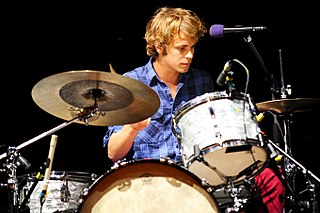A Quote by Richard Ford
You can't write ... on the strength of influence. You can only write a good story or a good novel by yourself.
Related Quotes
Gather knowledge about the craft of writing. Immerse yourself in the art of it. Then write. Write yourself silly. Write yourself mad. Write yourself blind. Trust the excitement that builds within you when the idea is good and the writing is superb. You can do it, but that's the hell of it as well as the exultation of it. You have to do it.
I think a good story can do as much as a novel; not the exact same thing, of course, but just as much artistically. They're different beasts, but to tackle an expansive country like the United States, you're either going to write a big novel, or go in to various points on the map and write stories or poems.
Too many writers think that all you need to do is write well-but that's only part of what a good book is. Above all, a good book tells a good story. Focus on the story first. Ask yourself, 'Will other people find this story so interesting that they will tell others about it?' Remember: A bestselling book usually follows a simple rule, 'It's a wonderful story, wonderfully told'; not, 'It's a wonderfully told story.'
Despite the natural belittling of one's self, the doubts, the insecurities, we have to wake up to the realisation that we all write our own autobiography, we are the authors of our life story. Realising that, write a good story with your life and make sure to write yourself as the protagonist. Be the hero of your journey.
I write first drafts with only the good angel on my shoulder, the voice that approves of everything I write. This voice does'nt ask questions like, Is this good? Is this a poem? Are you a poet? I keep this voice at a distance, letting only the good angel whisper to me: Trust yourself. You can't worry a poem into existence.
Any negative review you write, they'll say, "Oh, you're being so mean." I think the problem with a lot of criticism is that too many critics either write just description or they write in a Mandarin jargon that only a handful of people can understand, or they write happy criticis - everything is good that they write about. I think that's really not good. I think it's damaged a lot of our critical voices.
I always write a draft version of the novel in which I try to develop, not the story, not the plot, but the possibilities of the plot. I write without thinking much, trying to overcome all kinds of self-criticism, without stopping, without giving any consideration to the style or structure of the novel, only putting down on paper everything that can be used as raw material, very crude material for later development in the story.






































